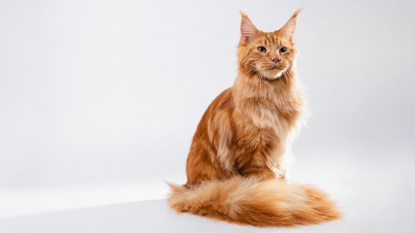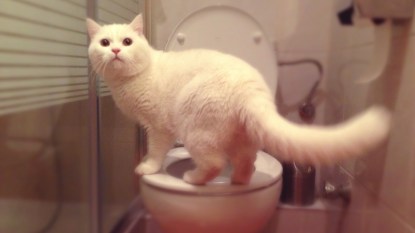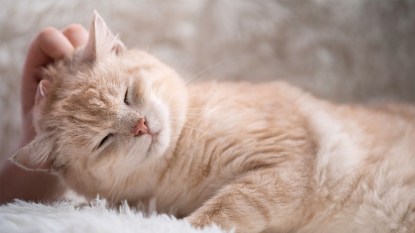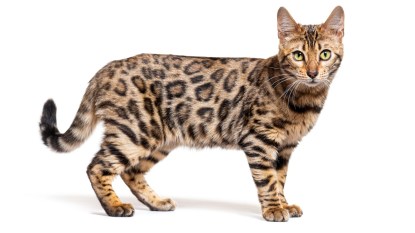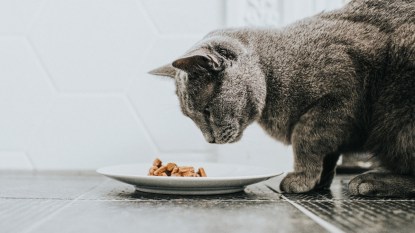Can Cats Tell When We’re Stressed? Here’s Proof That They Can — and How It Affects Them
You may not know it, but your stress is paw-l-pable.

Though cats have a reputation for being cold and aloof, they can actually be incredibly sweet and comforting. They may not aim to please in the same way that dogs do, but they take more notice of their owners than we’d like to believe. In fact, research shows that cats detect and react to human stress — so much so that it can affect their own personalities and health.
The news comes from a study published in PLOS One that was conducted by researchers from the University of Lincoln (UL) in Lincoln, UK. While the idea might seem obvious to some owners (of course cats experience stress when their humans are stressed), it’s an important step in the world of cat studies. The reason? “The research has lagged behind in cats,” Dr. Elinor Karlsson, a geneticist, explained in The New York Times. “I think they’re taken less seriously than dogs, probably to do with societal biases.” (It’s important to note that dogs are the subject of so many studies because they get a lot of the same cancers as humans. However, Dr. Karlsson says some researchers believe cats may actually be better models for cancer.)
Cats react to our stress.
The UL researchers wanted to understand how a cat owner’s personality and stress levels affected the lifestyle, behavior, and overall well being of their cat. So, they studied 3,331 cats — and their owners — and found that cats mirrored their owner’s wellbeing and behavior, and vice versa. More specifically, owners who were generally healthy and happy were more likely to report that their cats were healthy and happy. Owners who felt stressed and anxious were more likely to report that their cats were aggressive, anxious, or fearful, and had ongoing medical conditions.
Why might this be? “Our personalities may be an important factor in relation to how we interact with and manage our cats, and this can have important consequences for their well being,” study author Lauren Finka told PsyPost.com. “Cats may not always find living as our pets easy, and it’s important that we are aware of how our behavior may be impacting upon them, in both positive and negative ways.” Finka notes that further research is necessary to explain why this correlation between owner and cat personalities exists. Still, the study is helpful, because it shines light on how our behaviors affect our furry friends.
Some cats comfort us when we’re sad or anxious.
Fortunately, it isn’t always a bad thing to act stressed, sad, or anxious in front of your cat — because it gives your pet the chance to comfort you in his or her own way. For example Sara Ochoa, DVM and co-founder of How To Pets, noted that cats sense a change in behavior when you are upset and may try to rub up against you, lie in your lap, or lick your face or hands. (And if your cat never stops bothering you while you’re working, your stress may be the reason!)
Just look at this sweet black cat for proof — she wipes away her owner’s tears with her paws.
So, the next time you’re trying to convince your dog-loving friends and family that cats are sweet and affectionate, use this evidence in your argument!
Want to learn more about your furry companion? Find out why the slow-blink is so important in bonding with your cat, and learn the six ways your cat shows affection.



